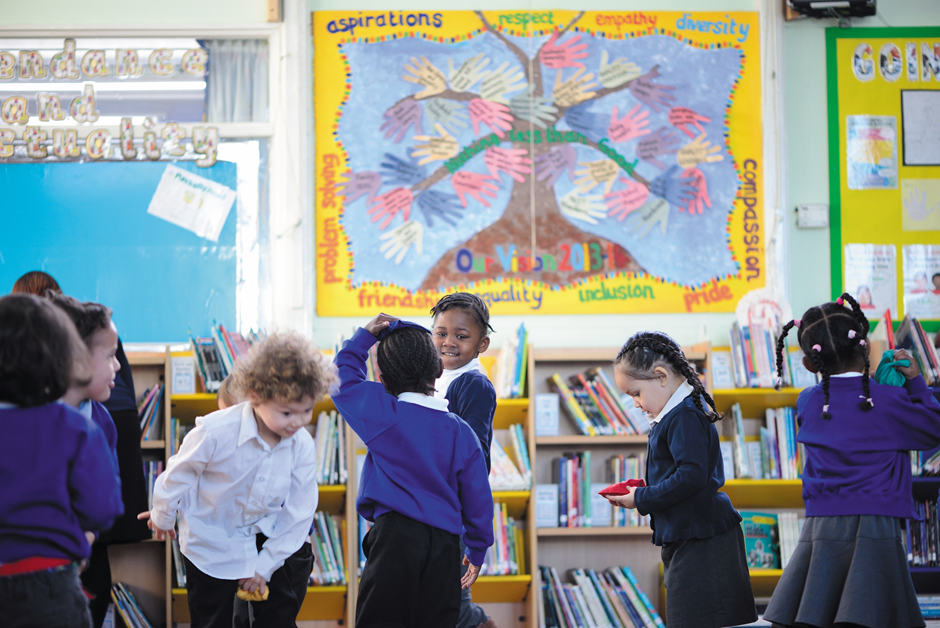
July 6, 2018, by Rupert Knight
How to make the world a better place: teach children how to think
Teachers generally believe that education can make the world a better place, but we need to realise there is some good news, and some bad news about this.
In this post, John Perry reflects on the place of thinking skills in our schools.
Firstly, some good news: schools are improving. More children achieve more highly than they did twenty years ago, and teachers are more professional.
Secondly, the bad news: whether you are a child or an adult, schools feel more difficult places to work in, partly because the current system is so aggressively focused on a narrow range of ‘metrics’, such as SATs results.
Currently the English school system is geared towards proving that teachers teach, rather than developing children’s intelligence. This is obviously counter-productive. We need a system which enables all children to become genuinely intelligent, rather than to simply know lots of stuff. This is not to deny the importance of knowledge, nor even the importance of exams. My concern is that we are so focused on examination outcomes that we neglect teaching children to be thinkers.
Thirdly, some really good news: there is overwhelming evidence that we can teach children to become intelligent, thinking people who do more than just ‘know stuff’ for their exams.
Recently, along with colleagues at Liverpool Hope University and Plymouth Marjon University, I have carried out a literature review about one way to help children develop their intelligence: thinking skills. When you look at the available evidence, it quickly becomes clear that no matter where you look, teaching thinking skills is a good thing.
‘Thinking skills’ is an umbrella term, but it is one of the things which makes us human. As far as we know, humans are the only species who can actively and deliberately plan how we think about things. The earliest evidence of this is about 150000 years old, and is central to our evolution (Chein and Schneider, 2012). In the classroom, thinking skills can include a huge range of teaching techniques, such as writing frames, concept maps or questioning for example, which can really help to develop children’s cognitive control when taught by schools in a systematic way. The important thing which such strategies have in common is that they develop children’s abilities to be in control of their own learning, and thus become more independent and autonomous.
There has been a fair degree of research into thinking skills since the late 1970s. John Flavell is generally acknowledged to have started this field of research (Flavell, 1979), but it is important to note that his work almost echoes some of the work of Vygotsky. Over the years the research has grown so that we can now look at various meta-analyses, such as The Education Endowment Foundation which suggests that teaching thinking skills can add 7 months progress to a child’s development; John Hattie suggests a strong effect size of 0.53; and there are many other studies which we report on in the Educational Review article which also suggest hugely positive effect sizes.
The evidence clearly suggests that teaching metacognition is beneficial at any age; it is beneficial for SEND children; it is beneficial for EAL students; there are even early indications that it can help to diminish the disadvantaged gap. What’s not to love?
So, what can be done?

Teachers, no matter what age group they teach, can introduce thinking skills to their lessons. By adopting strategies such as Mind Maps or writing frames, for example, teachers can simultaneously help children to learn how to learn, as well as teaching more conventional knowledge.
Schools can adopt whole-school approaches to the systematic teaching of thinking skills, and the evidence suggests that this is far more effective than when individual teachers work alone. Some useful strategies are suggested in the EEF’s 2018 metacognition report and there are various approaches which can be developed, such as Building Learning Power, but there is nothing to stop schools developing their own bespoke programmes for their own contexts.
At a system level, the government could add thinking skills to the National Curriculum or the Standards for Teachers. Looking beyond the English system, many of the countries and jurisdictions which successive governments have looked to for inspiration use thinking skills in their curricula. Hong Kong, Shanghai and Finland all make use of thinking skills in their classrooms, yet England does not.
Why is this? I think there are at least three reasons.
-
Firstly, the development of a coherent thinking skills curriculum is not a quick option
-
Secondly, it is difficult to measure thinking skills, and the government likes to measure things
-
Thirdly, not long ago we had Personal Learning and Thinking Skills (PLTS), which would have helped to place England as a world leader in thinking skills in the classroom. Unfortunately PLTS suffered from ‘Framework Fatigue’ and was a strategy too far for most schools, coming as it did on the back of the National Literacy Strategy, the National Numeracy Strategy, Extended Schools etc. This is a shame, but understandable. There is only so much that schools, teachers and school leaders can do with the meagre resources they have.
So, perhaps the best that teachers can do is to take back a little control for themselves and begin to teach children how to think and learn, alongside conventional knowledge. After all, surely we would rather have generations of intelligent, independent thinkers, rather than generations of automatons who know lots of stuff, but can’t think for themselves. Such an approach will, I believe, make the world a better place.
CHEIN, J. M. & SCHNEIDER, W. 2012. The Brain’s Learning and Control Architecture. Current Directions in Psychological Science, 21, 78-84.
FLAVELL, J. H. 1979. Metacognition and Cognitive Monitoring: A New Area of Cognitive-Developmental Inquiry. American Psychologist, 34, 906-911.
No comments yet, fill out a comment to be the first

Leave a Reply